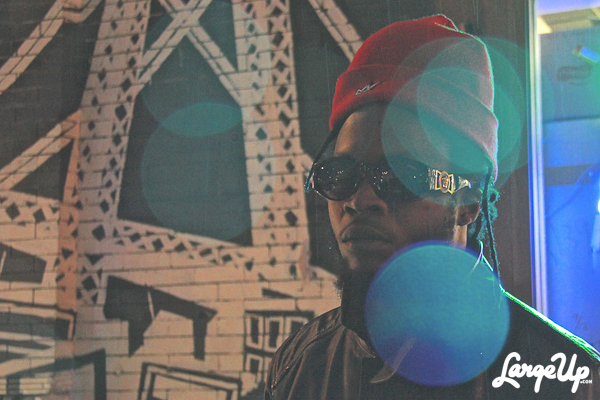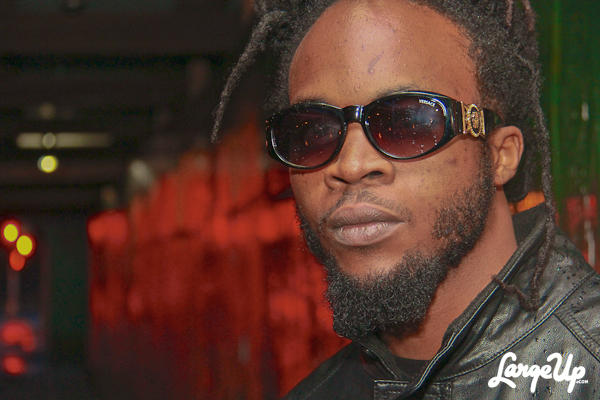LU: You mention NWA. What kind of exposure did you have, growing up in St. Thomas, to hip-hop?
P: When I grew up, the only thing that played on the radio was the hit records. We had one hip-hop station. We didn’t get to hear all the underground rappers—it was Jay Z, Ja Rule, DMX, the top hitters. We only heard people who were getting radio spins nationwide—that was the only way it would trickle down to the Virgin Islands. In the early 2000s, you just had a lot of conscious rappers hitting the scene—Nas was doing his thing—and that’s really when I fell in love with the craft. Like, this is something I can do. I know how to rap too, and be poetic with it, and witty with it.
Over the years, I learned you’re either going to do business with it, or you’re just going to have it be your hobby, and get a side job to survive. Especially in the Virgin Islands, where people are more moved by reggae, calypso, soca. People were like, “Yeah, you’re doing your hip-hop thing, but if you want to represent the VI, why don’t you just make reggae?” The fact that pretty much the whole city is behind it right now, and it’s still hip-hop, it’s still what I believed in, what I didn’t give up on, makes all the difference right now, and we’re trying to keep it going.
LU: A listener might not know that you’re from the islands unless you’re listening to the lyrics where you’re talking about where you’re from. Stylistically, it’s just hip-hop. What are the challenges in getting your island on the map, so hip-hop can recognize you as a part of “it”?
P: The dynamic of that is what my whole brand is about, that’s what the whole team is about. We’re coming from this tiny island that’s got about 100,000 people, and only about 20,000 of them like hip-hop, so it’s kind of like a “why are you guys even doing it” kind of factor there. On the flip side of it, we’re good.




